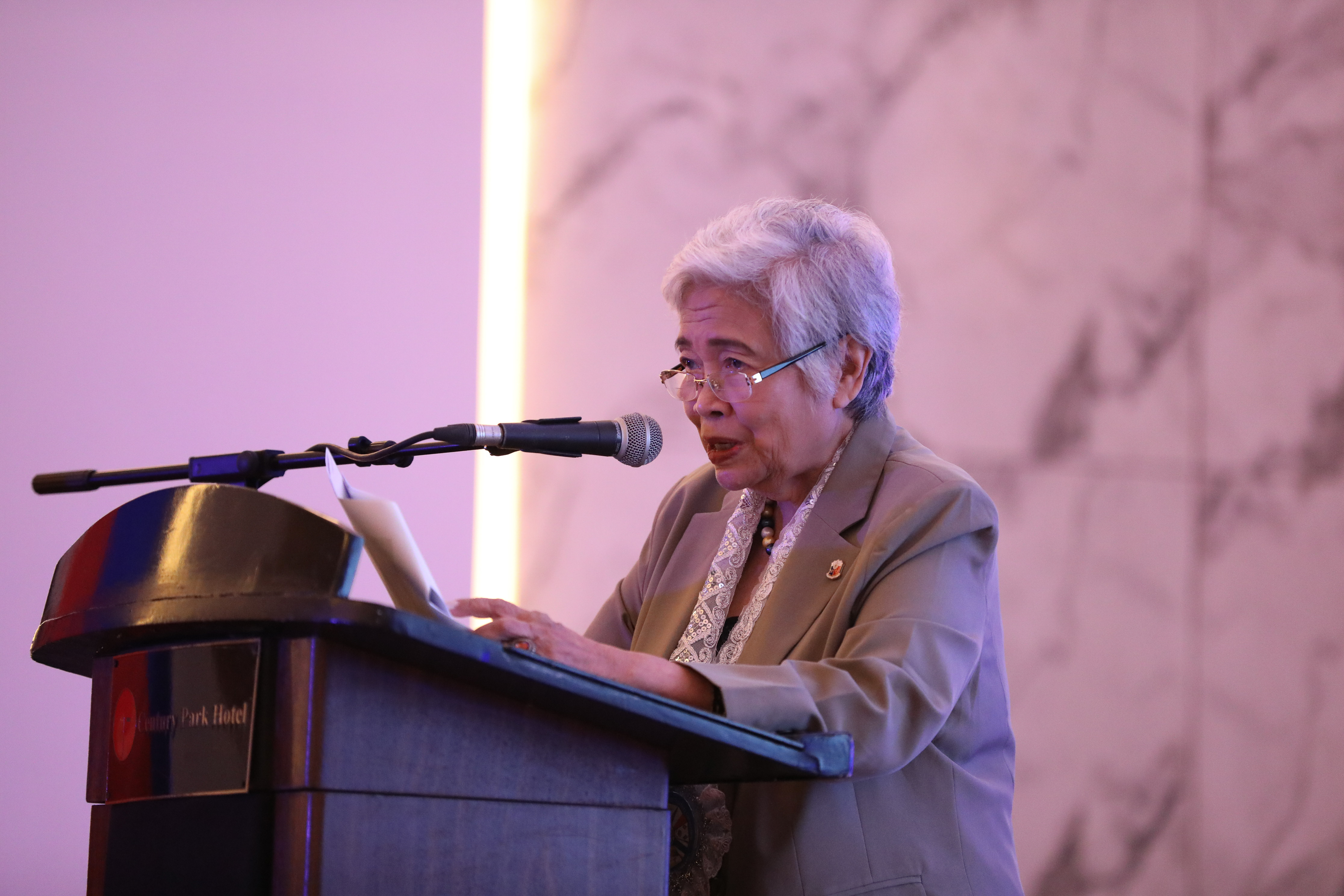MANILA, September 18, 2018 – Department of Education (DepEd) Secretary Leonor Magtolis Briones underscored the importance of strengthening global citizenship in achieving the education targets set by various international organizations including the United Nations, the United Nations Educational, Scientific, and Cultural Organization (UNESCO), the Asia-Pacific Economic Cooperation (APEC), and the Southeast Asian Ministers of Education Organization (SEAMEO), among others.
The Education chief discussed this during her keynote address for the Association of Southeast Asian Nations (ASEAN) Council of Teachers (ACT) + 1 Convention spearheaded by the Philippine Public School Teachers’ Association (PPSTA) at the Century Park Hotel Manila from September 14 to 16.
With the theme, “Strengthening the Hallmarks of Excellence in Education through ASEAN + 1 Teachers’ Integration,” the convention was aimed at establishing closer ties among teachers in the region, and promoting their cultural and professional enrichment. It was attended by more than a thousand teacher-leaders from the ASEAN member countries and the Republic of Korea.
Global citizenship
“I would propose that one of the major concerns of ACT+1 would be to further enhance and spread what I would say in religious terms, the gospel of global citizenship. Because if we strive for global citizenship, we will also be striving for ASEAN + 1 citizenship, and we will be recognizing our common humanity,” Briones shared.
“And global citizenship is based on the universal values of human rights, democracy, non-discrimination, and diversity. It’s about civic actions that promote a better world and future. So as the experts say, we move towards an inclusive, just, and peaceful world,” she added.
Briones further enjoined the participants to love their own communities and countries, while keeping in mind that they are part of a broader community, region, and of the planet Earth.
Barriers to inclusion
Upon discussing the various education goals set by international organizations, most of which are targeted in the year 2030, Briones zeroed in on the need to address barriers to inclusion.
“If you want to achieve all these wonderful education goals by 2030, first and foremost, we must also attain peace. So even as we examine our curricula, even as we look at science and technology, even as we debate about better ways of teaching, it has to be all in an atmosphere of peace. So we cannot engage in all these things unless there is peace among countries,” the Secretary pointed out.
She also cited the need for adequate financing in order to achieve accessible and quality education, the issue of persistent poverty, and differences of opinions on national policy: “How can we teach global citizenship, how can we bring about the exciting things in the curriculum, about all the goals of human development, when we also have persistent poverty?”
Global yet local
One of the highlights of the Education chief’s keynote message is the proficiency of ASEAN citizens in the English language. She reiterated, however: “Even as we enhance, as we strengthen our capacity for the usage of English, we should not forget our individual languages, our dialect, and our culture because these make us what we are as a people.”
On the same day, Korean Ambassador Han Dong-Man paid a courtesy visit to the Education Secretary to talk about forging partnerships, cooperation on education between the two countries, offering Korean as a second language in schools as part of DepEd’s Special Program in Foreign Languages (SPFL), and teacher exchanges.
The Education chief likewise noted that while the education goals and targets were directed primarily at policymakers and ministers who attend meetings and conventions, the proceedings have to be cascaded down to the teachers: “Because it is the teachers who will be molding the learners. And how to make these more concrete in our respective countries is a very interesting and exciting challenge.”
“We need to focus on the role of teachers in achieving these goals. But at the same time, while we think global, we cannot let go of our history, our culture, our own legal systems, and our own store of memories which will inspire us to move forward,” she concluded.
Other Executive Committee members of the Department present during the convention were Undersecretary for Curriculum and Instruction Lorna Dig-Dino, who discussed inclusive education in the context of ASEAN + 1 integration, and Undersecretary for Finance–Budget and Performance Monitoring Annalyn M. Sevilla, who delivered the country report of the Philippines on September 14, and Undersecretary Alain Del B. Pascua who talked about safe schools on September 15.
END





